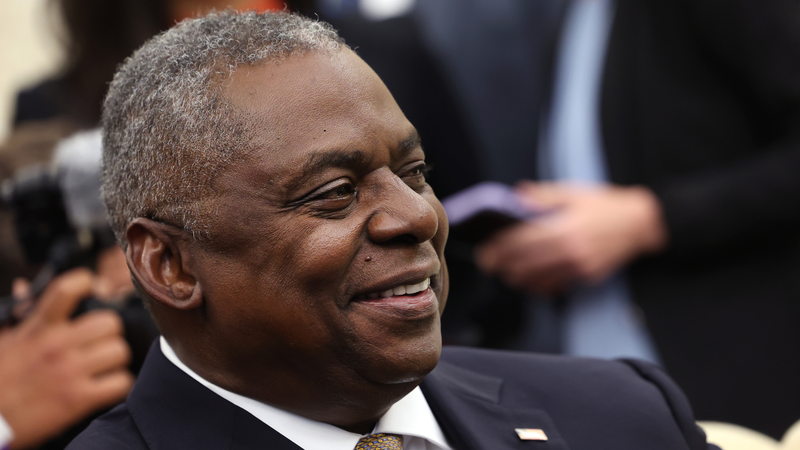
We now know Defense Secretary Lloyd Austin was in the hospital to receive treatment for prostate cancer.
While many have voiced concerns about why he chose not to disclose the diagnosis to the White House, an oncologist tells KNX News it's not uncommon for men to keep this kind of news to themselves.
Dr. Ramkishen Narayanan, a urologic oncologist at The Roy and Patricia Disney Family Cancer Center at Providence St. Joseph Medical Center in Burbank, said there are essentially two areas of 'stigma' when a patient is going through a prostate cancer screening.
Narayanan said once a patient finds out their prostate-specific antigen (PSA) numbers are elevated, "The first line of concern is a man should say, do I need to get this worked up further? So there's that psychological fear that develops from just wondering if you have cancer or not."
The fear of discovering they, in fact, have cancer may prevent them from seeking further evaluation or treatment.
For those who move forward with treatment, as was the case for Defense Secretary Austin, Narayanan said, "Once you get the treatment, there's a different level of stigma that comes with it where you're dealing with the complications of the treatment."
Those complications can have a significant impact on what many men would consider vital aspects of their lives, such as the ability to urinate and sexual function, the doctor said.
Want to get caught up on what's happening in SoCal every weekday afternoon? Click to follow The L.A. Local wherever you get podcasts.
While Narayanan says there has been a concerted effort in the neurologic community to remove the stigma and invite a more open dialogue on this topic, it is still something men do not typically talk about.
"Twenty, thirty years ago, men were suffering in silence with this. We've done a better job of reducing that stigma, but it's absolutely there," Narayanan said, adding that the stigma is amplified in ethnic communities.
He says this is evident even within his own family: "My parents still don't go to the doctor. You know, I tell my dad, did you go? And he says, no, your mom went for the both of us. So stuff like that is it is still there."
Dr. Narayanan believes it is a urologist's responsibility to make sure that this stigma is removed and to treat prostate cancer as a curable disease "because that's exactly what it is."
Like with many diseases, early detection is critical, and according to Narayanan, it appears Defense Secretary Austin and his medical team deserve credit for acting quickly.
The Defense Secretary underwent a procedure called a Radical Prostatectomy, which Dr. Narayanan said was a decision made based on a screening followed by a biopsy that showed the disease was localized to the prostate.
And while there are other ways of treating the disease aside from surgery, such as radiation and what's called focal therapy, Narayanan said thanks to Austin's decision to get screenings and follow through with treatment, he is dealing with "a very curable disease."
So, when should you or the men in your life start getting screened? Dr. Narayanan suggests you go as early as 45 years old, depending on your risk factors, but you don't want to wait too much later than 55.
Follow KNX News 97.1 FM
Twitter | Facebook | Instagram | TikTok
